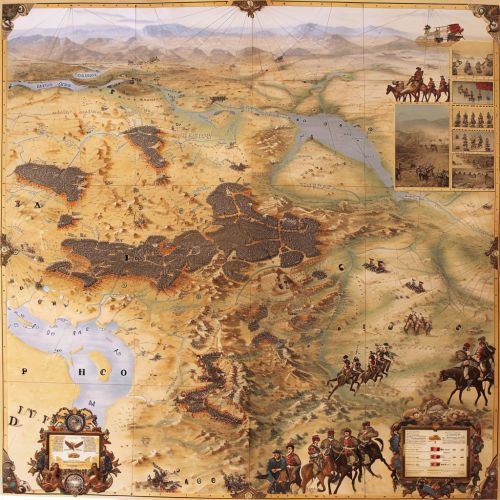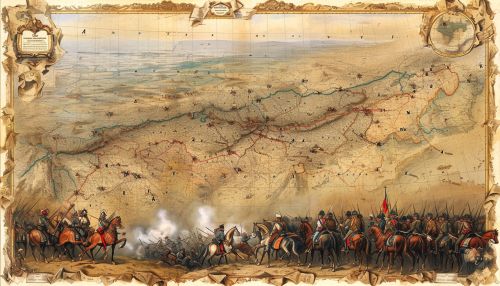Historical grand strategy
Introduction
Grand strategy, also known as high strategy, is a broad framework that guides the major actions of a state or other large organization to achieve long-term objectives. It is a concept that has been used throughout history, but it has gained particular prominence in the modern era due to its application in World War II, the Cold War, and other significant global events.


Historical Overview
The concept of grand strategy can be traced back to ancient times. Sun Tzu, a Chinese military strategist who lived in the 5th century BC, wrote about the importance of having a comprehensive plan for achieving victory in his book, The Art of War. Similarly, the Roman Empire's success in expanding its territory was largely due to its effective use of grand strategy.
During the Middle Ages, grand strategy continued to play a crucial role in the conduct of warfare. For example, the Crusades were a series of religious wars that were guided by a grand strategy of reclaiming the Holy Land from Muslim control.
In the modern era, grand strategy became even more important due to the increasing complexity of warfare and international relations. The two World Wars and the Cold War are prime examples of conflicts where grand strategy played a pivotal role.
Elements of Grand Strategy
A grand strategy typically involves several key elements. These include the identification of long-term objectives, the development of a plan for achieving these objectives, and the allocation of resources to implement this plan.
One of the most important aspects of grand strategy is the identification of long-term objectives. These objectives should be clearly defined and should align with the overall goals of the state or organization.
The development of a plan for achieving these objectives is another crucial element of grand strategy. This plan should outline the major actions that will be taken to achieve the objectives, and it should take into account the various challenges and opportunities that may arise.
The allocation of resources is also a key part of grand strategy. This involves determining how resources such as manpower, money, and materials will be used to implement the plan.
Grand Strategy in Practice
In practice, grand strategy is often applied in the context of military conflicts. However, it can also be used in other areas such as diplomacy, economics, and politics.
For example, during World War II, the Allies' grand strategy involved defeating Germany first before turning their attention to Japan. This strategy was based on the assessment that Germany posed a greater threat and that defeating it would put the Allies in a stronger position to deal with Japan.
In the realm of diplomacy, grand strategy can involve efforts to build alliances, negotiate treaties, and promote one's national interests. For instance, during the Cold War, the United States' grand strategy involved containing the spread of communism through a combination of military, diplomatic, and economic measures.
In economics, grand strategy can involve policies aimed at promoting economic growth, reducing inequality, and ensuring financial stability. For example, China's grand strategy in recent decades has involved opening up its economy to foreign investment, promoting innovation, and improving its infrastructure.
In politics, grand strategy can involve efforts to win elections, implement policy changes, and maintain power. For instance, a political party might have a grand strategy that involves mobilizing certain demographic groups, promoting specific policy positions, and building a strong party organization.
Conclusion
Grand strategy is a complex and multifaceted concept that has been used throughout history to guide the actions of states and other large organizations. Despite its complexity, the importance of grand strategy in achieving long-term objectives cannot be overstated. Whether in the realm of warfare, diplomacy, economics, or politics, a well-crafted grand strategy can be a powerful tool for achieving success.
